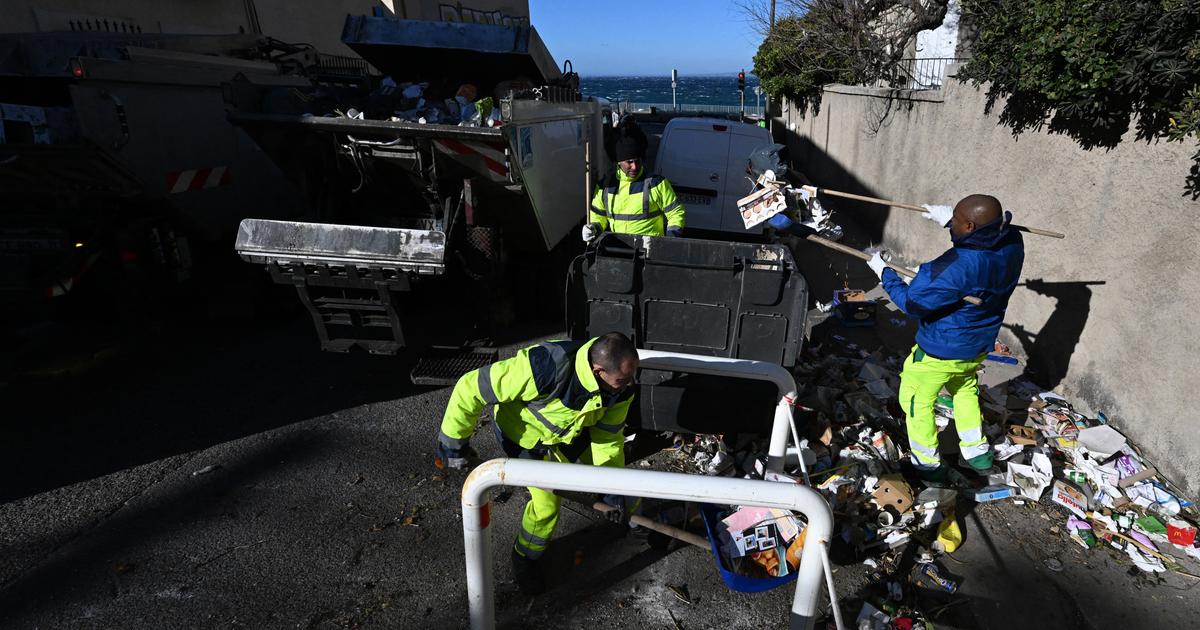Munich's paper bins overflow.
This is confirmed by the municipal waste management company (AWM).
The reason is the strong increase in the amount of cardboard boxes.
Munich - The retail stores have closed, online trading is booming.
Especially since the Corona * crisis.
More and more parcels are being delivered across the city.
You can see that in everyday life not only in the large number of delivery vehicles, but also in the overcrowded paper bins in residential complexes and recycling islands.
Cardboard boxes are piled up there and are usually placed next to the bins because they are already overfull.
When asked by our newspaper, AWM spokeswoman Evi Thiermann confirmed that this problem had worsened in the previous year.
If you take the number of parcel shipments from Deutsche Post as a basis, it's no wonder.
In 2020 alone, the number of parcels sent nationwide rose by 13.4 percent compared to 2019.
The absolute numbers are even more meaningful - from 1.588 to a good 1.8 billion.
So an increase of more than 200 million packages!
There are no figures for the Munich metropolitan area because DHL is not organized according to municipal boundaries.
In the Aschheim parcel center, for example, incoming and outgoing parcels for Munich * and, in some cases, Upper Bavaria are processed.
According to Post spokesman Dieter Nawrath, the maximum capacity here is 593,000 parcels a day.
DHL assumes that the trend towards online trading is sustainable
DHL assumes that the trend towards online trading is sustainable.
After the first lockdown, internet shopping was more in demand than before the pandemic, says Nawrath.
“Some older people have rediscovered online for themselves.
And existing online shoppers are turning to new product segments, such as daily necessities, dog food, wine. ”According to the company spokesman, DHL is very interested“ that parcel packaging is not bigger than it needs to be ”.
After all, the volume has a significant and costly influence on the space required, the loading capacities in the vehicles and the handling for the employees in the parcel center and during delivery.
Mountains of cardboard boxes - "Some of the stands are no longer accessible at all"
According to AWM spokeswoman Thiermann, a two-part trend can be observed.
In purely weight terms, the paper and cardboard waste has decreased.
This is due to the advancing digitization, "because there are fewer and fewer print products such as daily newspapers".
But the total volume of this waste fraction is increasing in view of the higher proportion of cardboard boxes.
The AWM employees can tell you a thing or two about it: “More and more often, paper bins are overfilled, or boxes that have not been shredded are standing next to them.
In some cases, this means that some stands are no longer accessible, ”says Thiermann.
The AWM employees would have to spend considerably more time to even get to the garbage cans.
More and more often there are also requests from homeowners to empty the paper bins weekly instead of just every 14 days, or to set up more bins.
Weekly emptying is an option for the GWG
Weekly emptying is definitely an option for the municipal housing association GWG, which manages more than 30,000 apartments in around 500 facilities.
“This is currently being discussed in-house,” explains company spokesman Michael Schmitt.
However, there is no space for additional tons.
According to Schmitt, the volume of paper and cardboard in the GWG residential complexes increased “significantly” during the corona pandemic and especially during the lockdown.
The caretakers are regularly busy shredding cardboard boxes.
Even at the municipal company Gewofag - they even look after 37,000 apartments - “waste disposal in all its facets is a constant issue”, as spokesman Frank De Gasperi puts it.
During the corona pandemic, the volume of waste increased overall.
“A direct consequence of the changed consumer behavior and the significantly increased length of stay in one's own apartment,” as De Gasperi speculates.
Because an increase in the emptying frequency - as far as the AWM could do this at all - would increase the operating costs, Gewofag relies more on informing tenants.
House notices and articles in the tenant newspaper are intended to raise awareness of the topic.
A method that the GWG also counts on.
-
* tz.de is part of the Ippen network.









